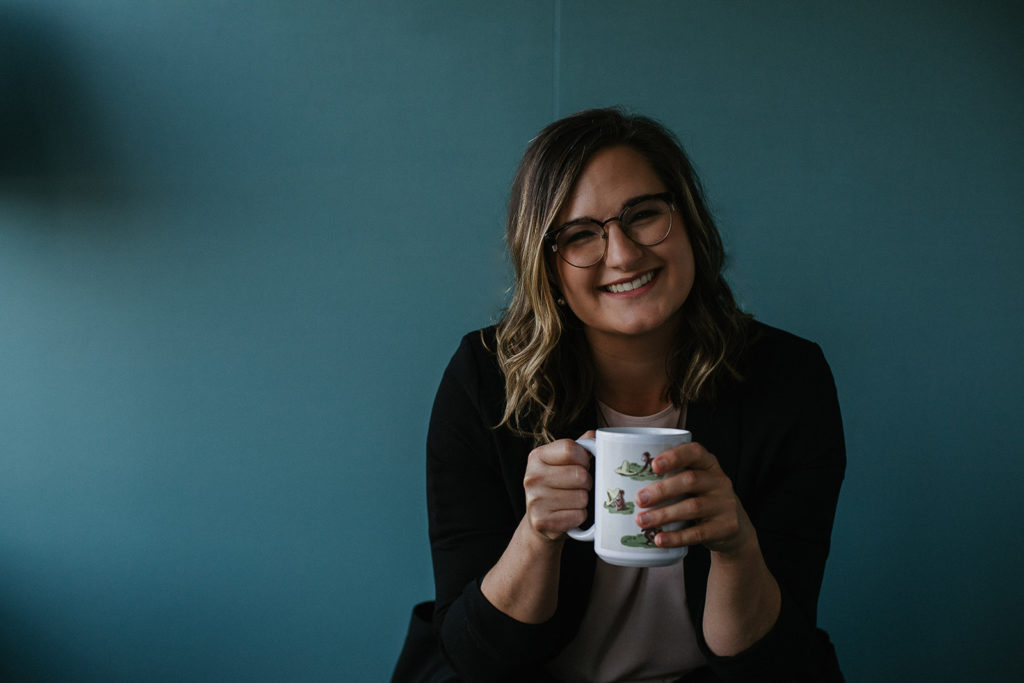About Dr. De Boer

I grew up in rural Alberta on a family farm I have always been the curious sort. Whether I am exploring nature on a walk in the mountains or learning a new baking skill on YouTube, I am someone who really values learning and exploration.
It was a great fit for me to pursue a Ph.D. degree in clinical psychology (University of Manitoba) as it allowed me to study questions and explanations about WHY humans do what they do. Not only that, but my education and training has allowed me to learn about HOW humans can move closer to their goals and live meaningful, purposeful, healthy lives.
After training in hospitals and community centres, I have settled into work in private practice. It is my goal to provide evidenced based psychological services for the Edmonton and surrounding areas in Alberta for health related concerns and burnout. In particular, as someone living with T1D, I am passionate about helping people living with diabetes find their version of thriving!
My Goals
I would describe my approach to interactions with my clients as a combination of caring and strategic. My intention is to work collaboratively with individuals experiencing distress to identify and name the barriers to their wellbeing, to articulate their values, and to honour the truths about their bodies, thoughts, and emotions as they carve their way ever closer to their purposeful life. I believe that all people are capable, resilient, and ultimately know what they need to thrive in the world – sometimes, they just need some kindly-strategic help to assist them in re-discovering those qualities. In therapy, I do my best to walk alongside clients through the dark, confusing, stressful or surprising times in their lives with the ultimate goal of helping them thrive. I aim to promote a therapeutic experience that includes four aims: safety, awareness/understanding, acceptance, and change.

My Assumptions
You have a number of choices available to you to help you get where you want to go. Friends, family, spiritual and religious guides, self-help, physicians, naturopaths, social workers, nurses, online TED talks and books are all options and resources that can help us make sense of ourselves and the challenges that keep us stuck. As a psychologist I bring a unique perspective that may have some similarities and differences from these other sources about the challenges you may be dealing with.
A psychologist is an expert on research and explanations for how humans act and behave. Psychologists have studied theories and ideas about human brains, bodies, emotions, thoughts, and actions influence one another. I have also studied how social systems and situations outside of our direct control influence individual wellbeing. What this means is that psychologists have a unique set of skills in helping people to determine if emotions or thoughts/ideas are interfering with behaving according to our values. Some of the things I have read and studied have lead me to hold the following beliefs to be true about humans:
1. Humans are complex and intricate creatures – a sometimes illogical combination of body, brain, emotion and thought – and each person has unique qualities in how that combination comes to life. What makes humans unique from many other creatures is that we have complex “thinking” or “thought” abilities we can use in addition to our emotions and body responses.
2. Humanist and Evolutionary theories are two of the primary theories that inform the ways I understand why people do what they do. I draw from a number of approaches but these are two of the big ones. This means that I believe that every person seeks survival first and if they can survive, they can then turn their attention to thriving and growth. When circumstances threaten our survival, humans are forced to focus on survival needs first. When humans are isolated from others that also impacts how they may survive and thrive. I take the approach that every human wants and desires a purposeful, joyful, and empowering life. I assume that every person is doing their best and reaching for a purposeful, empowering life for themselves.
3. Because we are “thinking” creatures, humans make sense of who they are by talking – by telling stories, by updating themselves through what they read, write, share, and discuss. It is through talking that we construct our story of where we came from, who we are, and who we want to be. In other words, we build our identity through conversation. We can build our understanding of who we are, and what motivates us, through purposeful conversations.
4. The stories or narratives we use to make sense of our lives are very powerful. They can even influence us often without us knowing it. Part of change is developing awareness of the internal (i.e., thoughts, emotions, body sensations, brain functions) and external (i.e., societal values, important events, how others behave) factors that are influencing our behaviour. Sometimes increasing our awareness is all that we need to create change. Sometimes awareness is the key to making plans for change that address the whole picture without ignoring important parts of ourselves and our world. Sometimes our awareness helps us realize what we cannot change and then we can focus on living our most purposeful life given what we know to be true. Awareness is an important part of self-understanding and change.
5. No one can write your story but you. No one else knows what it is like in your skin, in your relationships, at your job or in your home. I believe that if you are stuck in a chapter that seems bleak – with some strategic support – you can become clearer and empowered in your next right step. Please note that sometimes that next right step is hard or painful. Sometimes what we have to do for ourselves is really challenging and it never hurts to have someone supportive in our corner to encourage us onwards. Therapy is a team sport where I am a support to you.